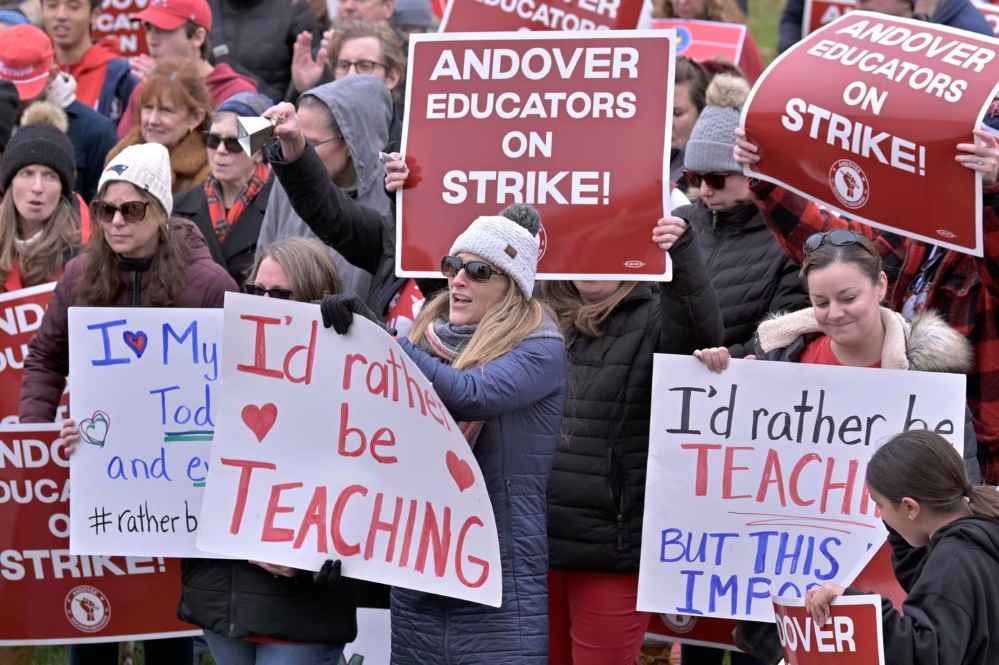
Holden Hopkins is a student at Harvard Law School.
In today’s News & Commentary, the NLRB does away with consent orders, analysis reveals the wins secured by teachers’ strikes, and the Fifth Circuit vacates tipped worker downtime rule.
On Thursday, the NLRB issued a decision in Hospital Metropolitano, ruling that the Board would end the practice of consent orders. Under this practice, parties accused of unfair labor practices could essentially offer unilateral settlement terms to resolve cases with Board approval, regardless of if the charging party accepted or objected to those terms.
In a 3-1 ruling, the Board held that the NLRA does not contemplate consent orders, and in fact appears to prohibit such practices. Instead, the majority’s opinion affirmed a desire for “true settlements” to effectuate the policies of the Act and promote labor peace.
Member Kaplan provided the sole dissent. He argued that consent orders provided a valuable tool by which the Board could enforce labor law. In Kaplan’s view, Board approval of consent orders “best preserves agency resources, advances the Board’s pro-settlement policies, and thereby serves the public’s interest.”
This ruling was also notable as the first precedential Board decision in nearly a year, according to Bloomberg Law.
Recent research indicates that strikes by teachers are effective at garnering significant wage increases while avoiding negative outcomes for students. Rachel Cohen broke down this research in an analysis for Vox, summarizing three key findings of the study.
First, teachers’ strikes are frequently more successful than strikes in other industries, due perhaps to the fact that teachers are less replaceable by non-union workers or automation. Teacher wages rose on average by three percent in the year following a strike, rising to eight percent—corresponding to roughly $10,000—five years after the strike. Additionally, these wage increases mostly came from increases in overall investments in education at the state level rather than simply shuffling existing funds.
Second, as teacher strikes tend to be short, limited to no impact was observed on student academic progress. This finding is especially impactful, countering repeated claims by conservative and anti-union groups that teacher strikes harm student advancement. If anything, the research indicated that the wins teachers gain from labor actions—from lessened burnout to better student-to-teacher ratios—may actually be a net benefit to students.
And finally, teacher strikes were more frequently observed in conservative, anti-union states. The observation that teachers would be more active engaging in strikes in states where such action is frequently illegal appears counterintuitive at first glance. The researchers attributed this phenomenon to the fact that in areas where teacher strikes are illegal, there is greater incentive to engage in larger, cross-district strikes rather than smaller individual actions.
On Friday, a three-judge panel of the Fifth Circuit vacated a 2021 Department of Labor rule which required employers of tipped workers to pay their employees the full minimum wage while they were not engaged in tipped work. This ruling overturns a July 2023 decision from the Western District of Texas which found the rule to be permissible under the FLSA.
Relying on Loper Bright, the Fifth Circuit held that the language “tipped occupation” employed by the Department in issuing the rule was not found in the FLSA. “The Final Rule is attempting to answer a question that DOL itself, not the FLSA, has posed,” the court stated. Circuit Judge Jennifer Walker Elrod wrote for the majority, ultimately stating that the rule “fails under the Administrative Procedure Act twice over.” “Because the Final Rule is contrary to the Fair Labor Standards Act’s clear statutory text, it is not in accordance with law. And because it imposes a line-drawing regime that Congress did not countenance, it is arbitrary and capricious,” she concluded.






Daily News & Commentary
Start your day with our roundup of the latest labor developments. See all
January 19
Department of Education pauses wage garnishment; Valero Energy announces layoffs; Labor Department wins back wages for healthcare workers.
January 18
Met Museum workers unionize; a new report reveals a $0.76 average tip for gig workers in NYC; and U.S. workers receive the smallest share of capital since 1947.
January 16
The NLRB publishes its first decision since regaining a quorum; Minneapolis labor unions call for a general strike in response to the ICE killing of Renee Good; federal workers rally in DC to show support for the Protecting America’s Workforce Act.
January 15
New investigation into the Secretary of Labor; New Jersey bill to protect child content creators; NIOSH reinstates hundreds of employees.
January 14
The Supreme Court will not review its opt-in test in ADEA cases in an age discrimination and federal wage law violation case; the Fifth Circuit rules that a jury will determine whether Enterprise Products unfairly terminated a Black truck driver; and an employee at Berry Global Inc. will receive a trial after being fired for requesting medical leave for a disability-related injury.
January 13
15,000 New York City nurses go on strike; First Circuit rules against ferry employees challenging a COVID-19 vaccine mandate; New York lawmakers propose amendments to Trapped at Work Act.